Thinking of investing in Dubai properties? Few important tips to note, and offers to beware of.
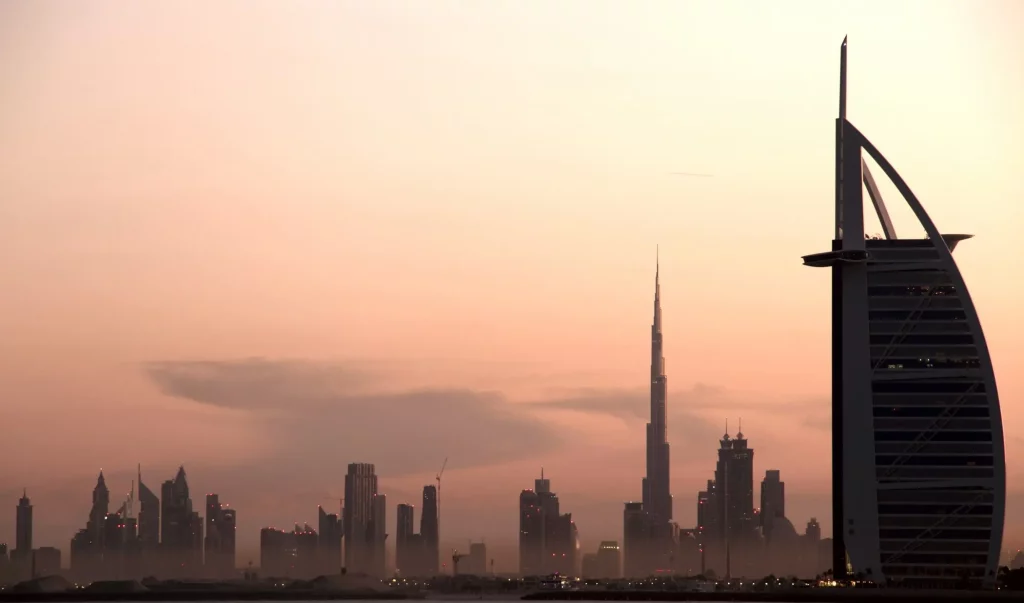
Nearly every human hopes to own some kind of property at some point in their life. Landed properties are some of the most valuable and common commodities on this list, and a well-chosen property can outlive its original owner, passing from generation to generation. A recent study by the Royal Institution of Chartered Surveyors (RICS) and International Property Measurement Standards (IPMS) showed that around 85% of the worldwide wealth is tied to real estate (rather than cash or bonds etc). And yet, deciding to buy a property is easy – but deciding where and which can be quite confusing. Following the global COVID-19 pandemic in 2020, like every other real estate market in the world, the Dubai real estate market also suffered a few setbacks. However, the Dubai market has seen a major improvement in the first half of 2021. These improvements can be tied to the following reasons; Rapid testing and vaccination by the UAE healthcare sector. Covid-19 has caused a shift in the market, with more residents wanting to move from apartments to villas as they expect to keep working from home in the foreseeable future. The UAE Government has implemented more suitable changes to the UAE Citizenship law and the Golden Visa. The UAE continues its major trend in more economic and infrastructural developments. The banks are offering more investor-friendly packages and mortgages for property buyers. So if you’re looking to invest in Dubai properties, here are a few things to note: Know your developer: There are lots of local and international developers in the UAE, so It is very important to do a background check on your developer. Choose a developer with excellent customer service and a good track record for delivery. Evaluate the qualities of projects, and compare them with other developers. Visit before making a purchase decision: Most brokers are after their commissions, so do not buy based on what they tell you. Visit and see for yourself, is it in the middle of nowhere, is that why it’s so cheap? Is the promised water view non-existent? Does the place reek of odors or mosquitos? Only a site visit will reveal that. Know the Location: Understand the location and take note of the community features. Look out for infrastructures like nearby metro stations and bus stops, schools, health centers, malls, parks, etc. These features attract the end-users, thereby increasing the long-term value of the property. Do your maths: Study the price and other numbers. Consider the service charges, Land Department registration fees, management costs, mortgage costs, current and future rent, etc. Apartments should be kept for 5-10 years to get maximum benefit. Villas can be kept for longer. An apartment can offer up to 10% RoI with a minimal increase in asset value. However, Villas offer less ROI of 2-4% but have cheaper service charges and higher value appreciation. Beware of an advert that guarantees a certain RoI. The Government is your friend: Finally, approach the relevant government authorities for advice before and not after buying. Go to the Dubai Land Department to ask about the service charges, unit and balcony areas, and project completion dates. Visit Dubai Municipality or Dubai Development Authority to check about planning issues. Contact the RTA to check about road construction progress. Approach the master developer to see if that promised school or mall opposite will actually get built. Luckily, all government entities have decent mobile apps that save you the hassle of a visit. However, if you decide to visit in person you will be met with free specialist advice and a warm cup of tea… and a smile to match!
The value of off-plan sales deals in Dubai reached its highest level in over eight years.
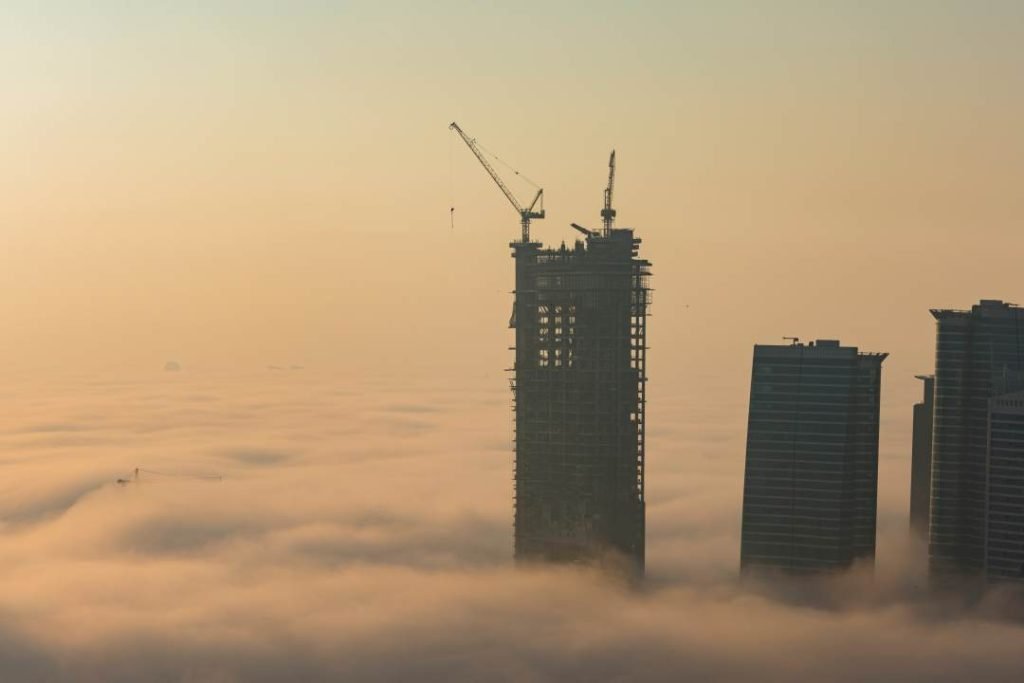
In the third quarter of 2021 alone, the Dubai off-plan market recorded 6,909 transactions worth Dh13.5 billion, making it the highest off-plan sales in 8 years. According to Lynnette Sacchetto, the director of research and data at Property Finder, “Off-plan sales started to increase considerably in 2021 and the amount of sales transactions between secondary and off-plan are now about 50/50. This is evident that investors see the value in investing in the future of Dubai”. Furthermore, in the third quarter of 2021, Dubai’s real estate market achieved a new milestone, as it became the best third quarter in the emirate’s history in terms of transaction value. The Property Finder’s latest figures for the third quarter of 2021 show that the total value of transactions reached Dh42.35 billion in 15,926 transactions. The volume of sales transactions grew 85.36% in the third quarter of 2021 compared to the third quarter of 2020, while the value increased 135.4%, making it the best third quarter for sale transactions volume in over 11 years. When compared to pre-covid periods such as Q3 2019, Q3 2021 showed a 64.51% increase in volume and a 138.81% increase in value. During the Q3 of 2021, the off-plan market transacted 6,909 properties for a total of Dh13.5 billion, while the secondary market transacted 9,017 properties worth a total of Dh28.85 billion in terms of volume of transactions. When compared to Q2 2021, the volume of off-plan transactions climbed 14.67%, while the volume of secondary/ready property sales declined 6.02%. The value of off-the-plan sales climbed by 47.11%, while the value of secondary sales increased by 4.24%. Additionally, due to the spectacular surge in monthly sales transactions and their valuations leading up to Expo 2020, Dubai real estate transactions surpassed Dh100 billion year till September, making it the highest transaction value since 2017. “Mortgage transactions are at an all-time high year-to-date, breaking all records, and the year hasn’t ended yet,” said Lynnette Sacchetto. Why you should invest in Dubai off-plan properties: Purchasing an off-plan house in Dubai has numerous advantages for an investor or someone looking to relocate in the near future. To begin with, off-plan properties are much less expensive than comparable properties in the area. This is particularly appealing to investors who want to buy inexpensively at a below-market-value (BMV) price and sell for a higher price, potentially earning thousands of dollars! Investors have made their fortunes by profiting from increasing appreciation as the project nears completion. As a bonus, any upfront fees are typically lower and more reasonable, which helps developers sell their off-plan property portfolios faster. Quick pros of off-plan investing: Off-plan properties in Dubai are at BMV-discounted rates You can benefit from low-interest financing and mortgages Smaller deposits and lower upfront fees. Property can often be customized to your liking. Properties are new and you will be the first occupant. With the correct property and market conditions, you enjoy a capital appreciation on your property. Learn more on how to invest in off-plan properties here Start building your personal wealth and earn passive income with intelligent real estate investing. Book a consultation today.
How to Sell Your Off-Plan Property in Dubai
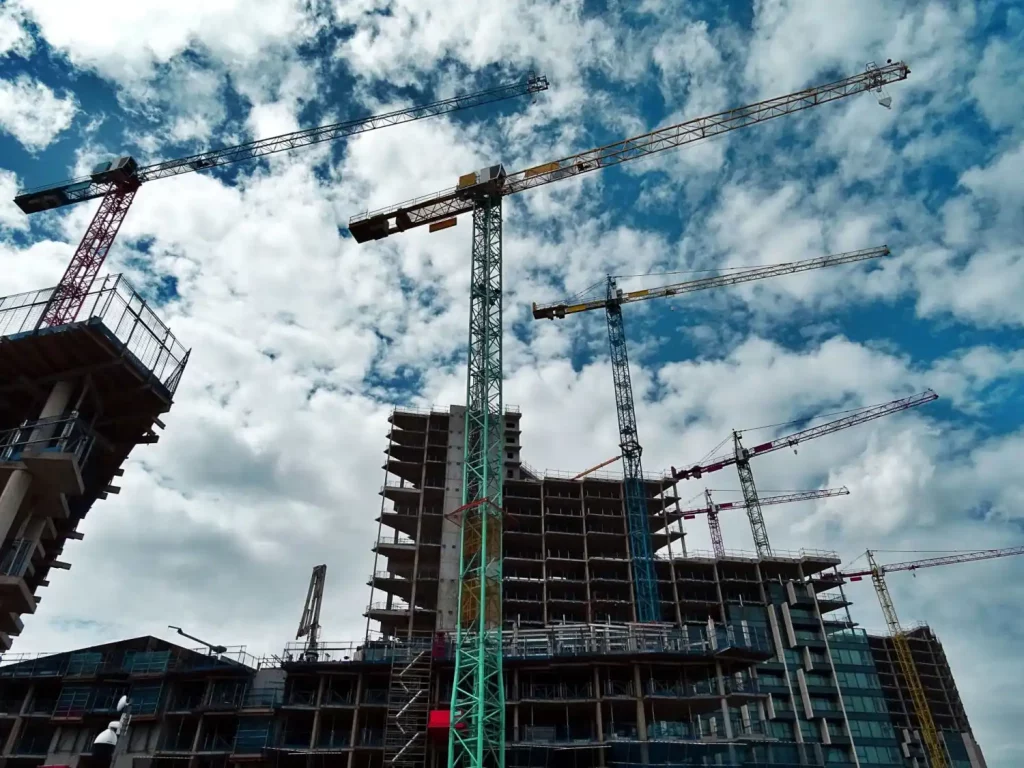
Buying off-plan properties is one of the most intelligent ways to invest in real estate. Intelligent buyers searching for reduced initial outlays with both higher long-term or short-term ROI usually go for off-plan properties. When an off-plan unit has significantly increased in value, investors can now resell the unit at a significantly higher price even whilst still under construction. WHEN CAN YOU SELL MY OFF-PLAN PROPERTY? After gaining some value on your off-plan investment, it’s important to know the rules and regulations before attempting to sell your off-plan property. Several measures have been put in place to ensure that the Dubai market is a safe and secure place to invest. One of these measures is the minimum payment by the first seller. This has a direct influence on buyers looking to sell their off-plan property before it is completed. For instance, Emaar Properties, Dubai’s largest developer, now demands owners to pay off a minimum of 40% of their off-plan property before it can be sold to a new owner. Although this 40% figure varies from developer to developer, therefore it’s important to double-check with each one. The procedure of selling an off-plan property is comparable to selling a ready property once the minimum repayment requirement has been fulfilled. Buyers and sellers agree on a price and terms, sign contracts, and apply for a NOC, which allows the new buyer to register with the developer and take over all outstanding payments once the transfer is complete. It’s also worth mentioning that, the new buyer no longer have to pay for the 4% DLD as this has already been paid for by the first buyer NOW WHAT? Now that you know the regulations governing the selling of off-plan properties, below are the steps to ensure a successful transaction. Choosing an agent: Finding a reputable real estate agent is the first step. It is preferable to seek out an expert who is more knowledgeable about Dubai, and there’s no better choice than The Property Investor. Get your documents ready: You must have all of the necessary documentation in order to sell your off-plan Dubai property. Some documents such as NOC will also be required, this will allow the new buyer to register the developer. Contract signing: Once the buyer is found, a contract is signed between the buyer and the seller. All necessary documents including the NOC will be handed over to the new owner. Start building your personal wealth and earn passive income with intelligent real estate investing. Book a consultation today.
Good rental revenue? Dubai among the top 3 cities in the world to experience the highest rate of rental growth in 2021
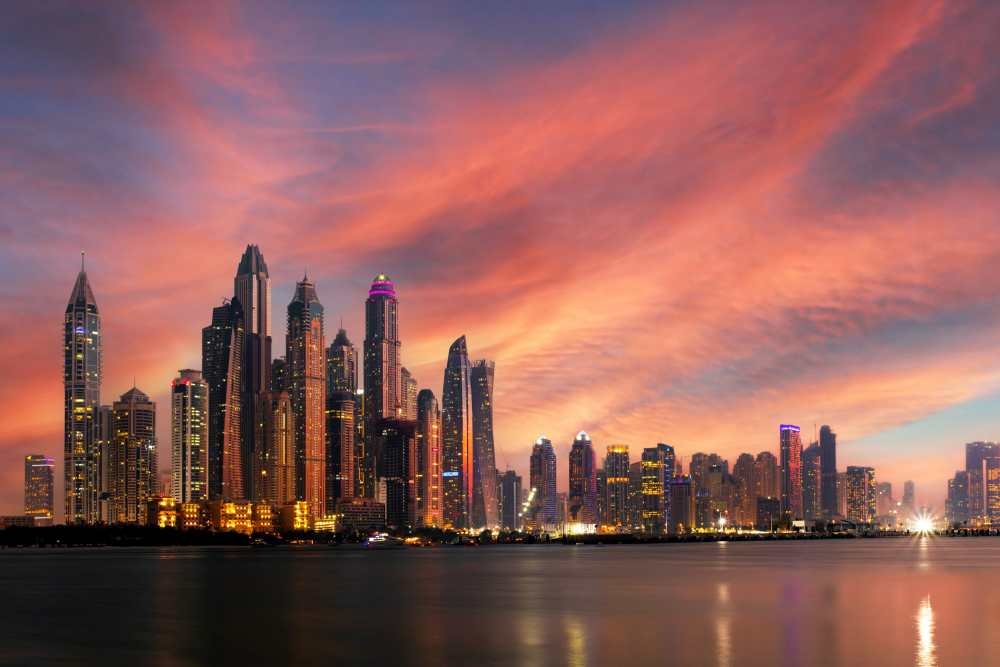
According to Savills, a leading global real estate advisor, Dubai, Miami, and Moscow had the highest levels of rental growth in the first half of 2021, as the Emirate’s property market reached a turning point after six years of negative rental growth, underscoring the strong rebound of the real estate sector. Savills said Dubai’s real estate market appeared to be at a turning point after six years of negative rental growth due to oversupply in the market in its newest analysis examining the rental values and yields recorded for premium residential properties in 30 cities across the world. Savills World Cities Index research, further revealed that prime rental rates in Dubai grew by 5% in the six months to June, driven by a 20% surge in rents for villas as residents emphasize space in the aftermath of the pandemic. According to the survey, Dubai rental prices have been steadily declining in recent years due to a wide range of initiatives that have resulted in a large overstock in the market. The worst year for rents was last year, with a 12% drop across the city due to travel restrictions and the consequent economic downturn brought on by the pandemic. However, the Dubai market appears to be at a turning point, according to the conclusions of Savills’ World Cities Prime Index Report. Rental markets are expected to stay stable for the rest of 2021, according to Swapnil Pillai, associate director of Research at Savills Middle East. Travel restrictions between key source markets remain in place, causing rental prices to recover at a slower pace than capital values. However, when economic activity picks up and more employment opportunities are generated, prices are anticipated to steadily rise in the long run. The relaxation of travel restrictions will also be a welcome boost to the economy, said Swapnil Pillai. In the first half of 2021, rental prices in the Savills World Cities Index’s 30 cities increased by an average of 0.5%. This follows a -1.8% drop in 2020 when worldwide travel restrictions lowered demand due to a lack of corporate relocations and increased property availability as previous tourist short-term rentals were converted to longer-term rentals. Although rents appear to have stabilized, rental growth remains much lower than capital value growth in the World Cities Index, which climbed at an average pace of 3.9% in the six months to June 2021, the fastest since December 2016, says Savills’ report. The situation isn’t the same all across the world. Rental growth has been stronger in suburban areas and cities that have been less affected by lockdowns. In the six months leading up to June 2021, 39% of cities in the World Cities Rental Index recorded positive rental growth, up from 25% in 2020. In June 2021, the average prime residential yield across the 30 cities was 2.9%, down from 3.1% in December 2020. Since Savills began tracking the data in 2005, this is the lowest average yield. Yields still vary significantly between locations around the world, ranging from 1.3 percent in Shanghai to 4.7 percent in Moscow. The report highlighted that Miami’s rental market has seen a surge in demand from domestic migration over the last year, with high rental costs and a limited supply of single-family houses. New projects are still being developed, but they aren’t keeping up with the demand for excellent rental properties in the city, according to the research. As Russian residents return to Moscow, the level of demand experienced over the previous half-year is equivalent to pre-crisis levels recorded at the end of 2019. According to the survey, after a drop in prime and ultra-prime rentals in the second half of 2020, these properties’ rental costs are climbing again, particularly for large apartments with outdoor space in key districts of the city. International tenants are important in premium rental markets in places like Kuala Lumpur, Hong Kong, New York, and other cities suffering negative rental price rises. Rental prices have continued to fall in these markets as travel restrictions have persisted over the last six months. Finally, as vaccines continue, travel restrictions ease and corporate relocations restart, the long-term picture for rental markets is brighter. According to the report, as tourism grows, supply from long-term rental markets will return to the short-term rental market, reducing available supply. Supply constraints in many cities can potentially raise rental costs in prime regions, notably in cities like Moscow, Barcelona, Madrid, and Cape Town, which provide larger-sized houses. Start building your personal wealth and earn passive income with intelligent real estate investing. Book a consultation today.
Buying off-plan property in Dubai? Here are important things to know before investing in Dubai off-plan properties.
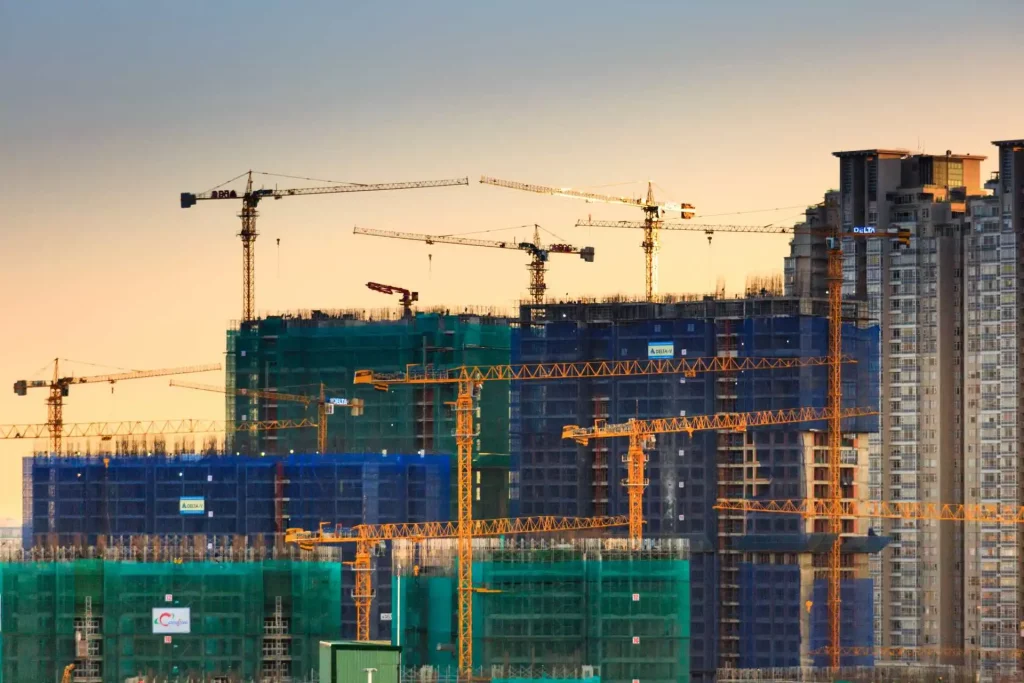
Purchasing an off-the-plan property may not appear to be the most apparent option, but with adequate research, better understanding, and smart investing, off-the-plan properties can yield higher returns than completed properties. Here is a complete guide to snatching the best off-plan deal in Dubai. But first, you need to understand what an off-plan property is. What is an off-plan property? Off-plan properties are unbuilt properties or properties that are in the process of being developed, purchased directly from the developer, or, in some cases, from the first owner or resellers. As a buyer, you are relying on renderings, floorplans, and virtual tours to help you decide whether this apartment is the correct one for you because you don’t have a completed property to base your decision on. If the buyer purchases directly from the developer at the time of purchase, the buyer usually pays a 10% to 20% advance and signs a SPA (Sales Purchase Agreement). Depending on which developer, the rest of the payment can and does vary, but is generally related to construction and handover. How to buy an off-plan property in Dubai Now that you know the meaning of off-plan property, you must understand the process. If the process is not clear and followed properly, it may cause concern, so we would like to elaborate on the following steps. Choose your investment: If you’re an investor or a house buyer, it is critical to check your budget and preferences with market availability in various projects when picking an off-plan property. This is where having a reliable and knowledgeable agent can help you get the most out of your investment. Know the project: Your next step will be to visit the developer’s sales boutique to gain a thorough grasp of the project’s benefits, as well as every aspect of your future property and project, using demonstration materials such as a Project Miniature Model, Brochures, or Virtual Tour. Some developers will also offer a Show Property that you can visit. Booking: After you’ve decided on a unit type, you’ll need to pay a booking fee to ensure that it’s taken off the list of available units for others. The majority of developers want a 5-10% booking fee in addition to signing the booking form for the unit of choice. Make your Down Payment and DLD Fees – After you complete the booking procedure, you will be asked to complete your first installment: “Down payment,” as well as pay the Government Registration Fees: normally 4%, however, some developers give DLD exemptions or other forms of discount. Sign the SPA: Whether you live in the country or not, the developer will send you the “Sales and Purchase Agreement” for your signature before sending you the dually signed copy after it has been signed by the developer’s authorized signatory. Oqood registration: This step is critical to ensure that your purchase is already registered with the government authorities. Once you’ve completed this step, you should receive your original contract of sale from the Dubai Land Department. Pay Due Installments: As part of the agreed-upon payment plan, you will be required to pay a certain percentage of the purchase price before your property is handed over. Completion Notice: As specified in the SPA, the developer is required to deliver the project and finish the construction before sending the completion notice to all clients at the same time. Inspection & Handover: Once you’ve made the required handover payment, you’ll be invited to examine your apartment on a specific date, in collaboration with the developer’s handover team. If you can hire a professional snagging team to accomplish this stage, it will make a significant difference in the condition and quality of your unit for future use. The benefits of purchasing a property off-plan Best Bargain: Purchasing an off-the-plan property allows investors to obtain a purchase price as soon as feasible and at the lowest possible price. Payment plans for off-plan properties are usually quite flexible and friendly. A property can be officially booked in your name with as little as a 5-10% deposit, followed by a similar figure within the following 30 days as you sign your SPA (Sales Purchase Agreement) with the developer. Eventually, the majority of the payment is deferred until the project is completed, providing an excellent opportunity for investors to buy a little more time and save up the full unit cost, or at the very least reduce the length of their mortgage repayments. Great Return On Investment: For intelligent buyers searching for reduced initial outlays and higher long-term financial returns, off-plan properties present excellent investment opportunities. Off-the-plan units are frequently sold below market value (BMV), and will naturally increase in value when the project is completed allowing investors to resell the unit at a significantly higher price once it is built. Additionally, investors can typically make a significant profit by selling off their off-plan property contracts during construction if the market has fared well, and there’s high demand for the project. Better affordability: Payment plans for off-plan properties can and do vary from developer to developer. The investment required is relatively cheap, with some developers demanding just a 5% down payment and the remainder tied to completion. Furthermore, new construction projects developed by reputable developers are finished to the highest standards, with a variety of modern amenities that save money in the long term. Increased savings in the years after the handover are possible thanks to the use of energy-efficient building practices, environmentally friendly features, and new technological breakthroughs. Lastly, Purchasing a brand new home can also help you avoid additional costs such as renovations and repairs that may be required if you purchase a property on the secondary market that hasn’t been well cared for by the previous owner. Greater choice of property units: When acquiring an off-plan unit, you will have access to the whole inventory of a building. This gives you the best opportunity to select the exact unit type you desire. By the time a project is finished, a
Dubai real estate market recorded a 40% jump in sales in H1 2021

In the H1 of 2021, the Dubai residential property market saw a staggering 40.2% increase in sales volume and a 55.87% increase in sales value compared to H2 of 2020. This came with the vibrant recovery of the residential sector. According to Property Finder demand data, Dubai witnessed a total sales transaction of 27,373 worth Dhs61.97 billion in H1 2021, this is up 40.2% in volume, and 55.87% in value compared to H2 2020. In a further breakdown, the first half of 2021 saw the Dubai real estate market record 17,434 secondary/ready transactions worth Dh46.88 billion and 9,939 off-plan transactions worth Dh15.09 billion. That is a 44% increase in value and a 56.28% increase in transactions for secondary/ready properties when compared to H2 2020. The report also showed an increase of 8.53% for secondary/ready properties and an increase of 15.36% for off-plan properties, with the average transaction price for secondary/ready properties increasing from dhs2.48 million in H2 2020 to dhs2.69 million in H1 2021, while the average transaction price for off-plan properties increased from dhs1.32 million in H2 2020 to dhs1.52 million in H1 2021. Furthermore, when talking about the growth in H1 2021, Lynnette A. Sacchetto, the director of Research and data at Property Finder, said “The increase was in both segments and the growth of the entire residential market by approximately 50 percent.” This growth trend ended the first half of 2021 of the Dubai real estate market with weeklong transactions worth Dh5.4b recorded. According to Dubai Land Department (DLD), a total of 1,617 real estate and property transactions valued at Dh5.4 billion were recorded during the week ending July 29, 2021.
UAE rent prices rank fourth highest in the world, and what it means for investors.
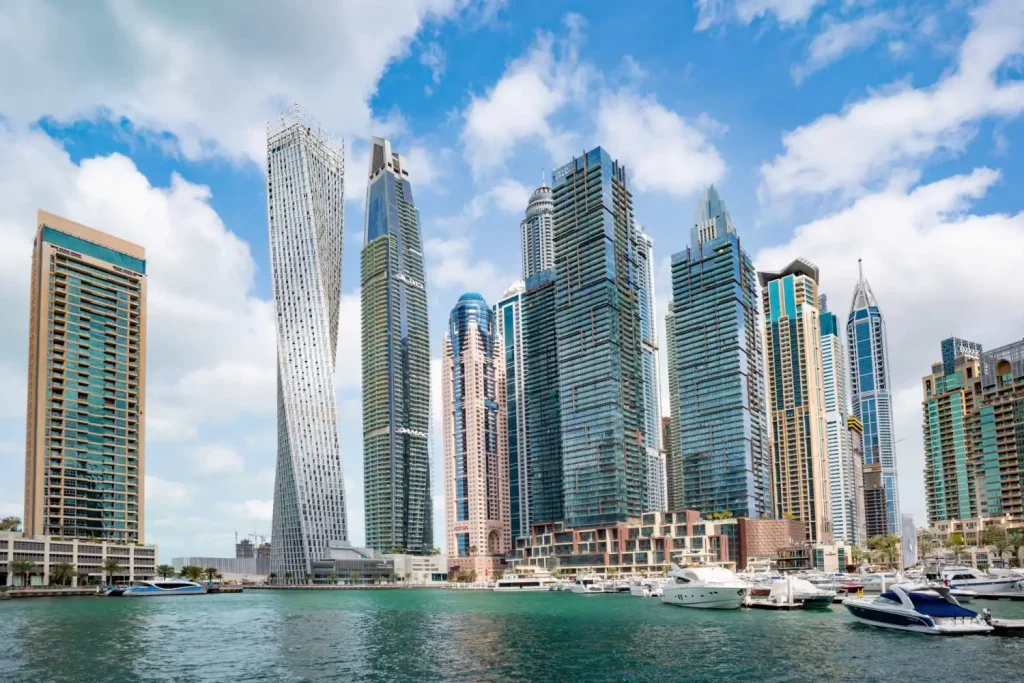
According to a recent study by money.co.uk, UAE rent prices are ranked fourth-highest in the world just after Hong Kong, Singapore, and Qatar respectively. This may not come as a shocking result, nevertheless, this result shows how valuable real estate investment in the UAE can be. The report also showed that UAE residents spend 39.85% of their monthly spending on rent, with a three-bedroom property in the UAE costing an average of $1,921 (Dh7,054) per month for rent. Additionally, the survey also found that the monthly cost of maintaining a family of four is approximately $2,901. Furthermore, the research data compared the average cost of renting a 3-bedroom property across over 50 global destinations and found that even though Dubai residents spend $1,921 on rent per month, they get the best value for money with bigger apartments. The UAE property market has been showing great signs of recovery following the three-year oil price slump that began in 2014. This is further fuelled by people who are upgrading to larger homes with outdoor amenities amid a remote working and learning trend sparked by the Covid-19 pandemic. What does this mean for investors? The high rental income may be a good reason to invest in Dubai properties, however, there are several other reasons as well. For instance, the UAE Government has put in place several initiatives such as; residency permits for retirees and remote workers, the 10-year golden visa program, and the recent slash of the cost of setting up a business in Abu Dhabi. These initiatives trigger an inflow of ex-pats and investors alike, thereby increasing housing demand. Would you like to invest in Dubai properties? Click here to book a consultation.
Dubai real estate: Dubai villa prices grew over 10.3%, should I invest in villas?
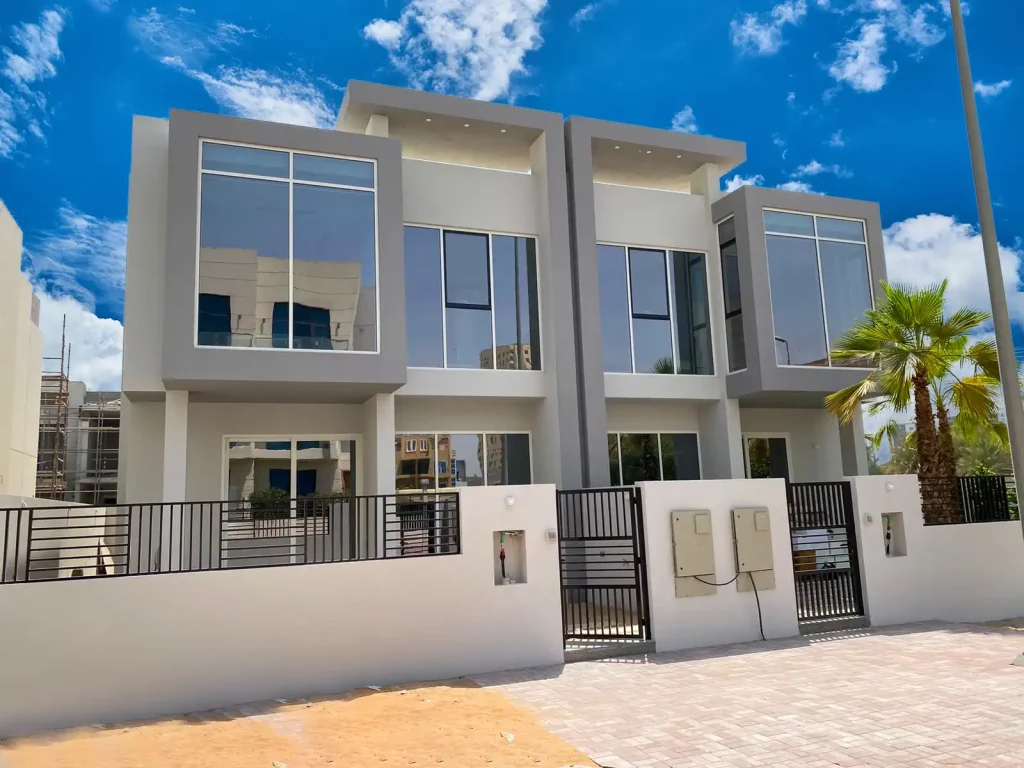
Dubai is one of the most profitable cities to invest in properties, be it villas or apartments. The latest data shows that the Dubai Villa prices have been in an upward trend during the second quarter of 2021. Dubai villas which make up just 13% of the entire Dubai residential market are responsible for 7% of quarterly growth, and 6.3% annual expansion. According to ValuStrat’s recent report, Villas in prime locations recorded up to 10.3% growth, and” most of Dubai’s areas recovered their capital losses of last year”. The report further claimed that June sales transactions surpassed that of May by 68% while month-on-month performance saw completed home sales grow 75.5%, and off-plan registrations by 59.5%. Dubai Property prices up ValuStrat’s VPI report for April-June 2021 showed that showed capital appreciation of 1.5% for Dubai residential properties in June, aggregating 5.5% since the start of the year. Part of the growth is fuelled by new expats coming in, “We are increasingly observing a trend where European buyers are emerging as a key demographic driving sales with most being end users. Based on our conversations with brokers and industry experts, the key motivation here is the relocation of entire families from Europe as opposed to the sole breadwinner living in Dubai. As further evidence of this trend, several schools have reported an uptick in enrolments of new residents,” said Zhann Jochinke, COO, of Property Monitor. So to answer the question, should you invest in Dubai Villas? There are several factors to consider before making such a decision, such as; the market trend, which data has shown to be positive, the location, and the demand for the project. The Property Investor can provide you with a perfect mix of those factors, to ensure you invest in Villa properties with high capital appreciation. Contact The Property Investor for a free consultation today.
Dubai is ranked 2nd best city in the world to work from home, what does this mean for Dubai property Investors?

A recent study by Nestpick on 75 major global cities often cited as ‘most livable destinations, ranked Dubai as the 2nd best city to work from home just after Melbourne. The report used factors such as Costs and infrastructure, Legislation and freedoms, and Livability to compare and rank cities in their work-from-anywhere index. Furthermore, Nestpick’s Work-from-Anywhere study used data to compare cities and determine the cities that are most attractive to foreign-employed workers, and the availability of infrastructure and legislation in place to make it easy for them to live and work there. According to Omer Kucukdere, the founder and CEO at Nestpick, he said the global pandemic has caused many people to ask the question “Is it really possible to work from anywhere?” He added, “What we’ve seen through our study, however, is that technology and employers have moved faster than infrastructure, with many legal barriers still in place for migrants who want to bring their jobs with them.” Additionally, Working from home and digital nomading is not a new thing, but the emergence of the pandemic in 2020 has accelerated this trend rapidly over the last 12 months, however, only a few countries have policies designed to attract foreign-employed workers. Instead, most counties only offer visas to those who take jobs on location, therefore missing the opportunity to bring high-wage earners to their cities without the need to generate new jobs. The UAE is one of the very few countries that quickly took advantage of this trend to create a fresh new residency visa type to attract these foreign-employed workers. In October 2020, Dubai launched a new immigration program that enabled overseas remote workers and their families to relocate and live in Dubai while continuing to serve their employers in their home country. What does this mean for Dubai property investors? Dubai is currently targeting a population of 4.8 million by the year 2040, these visa policies are part of the government’s strategies to achieve this landmark. With more population influx of digital nomads and their families, a spike in demand for residential properties is expected in the coming years, especially as more and more people are expected to work from home.
How to apply for an investor visa in Dubai.
I recently visited the Cube Centre at the Dubai Land Department to obtain UPDATED information regarding applying for a property Investor Residence Visa in Dubai. Watch this video to find out more… Documents required: Title deed Passport Passport photo Existing or expired Emirates ID & visa page NOC in Arabic from the bank if mortgaged Mortgage bank statement POA (If applicable) Cube Centre 3rd floor Dubai Land Department dld-taskeen@dubailand.gov.ae
